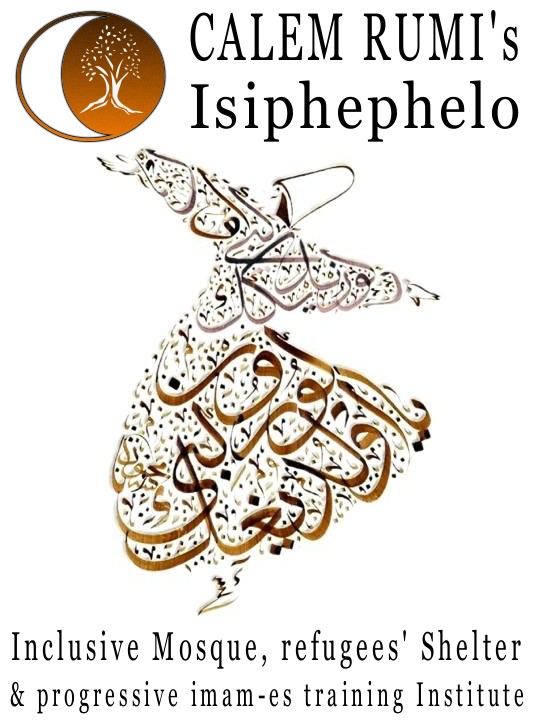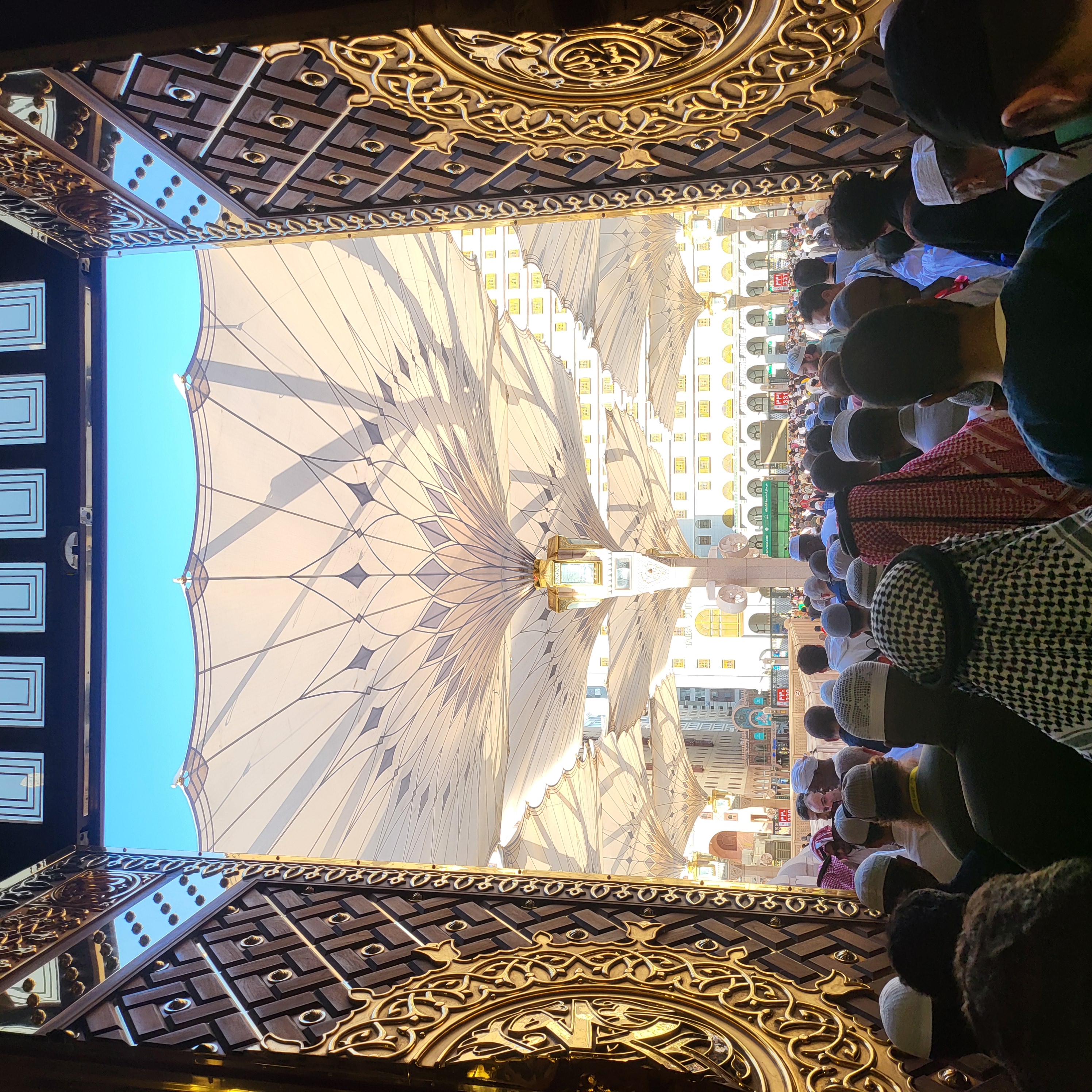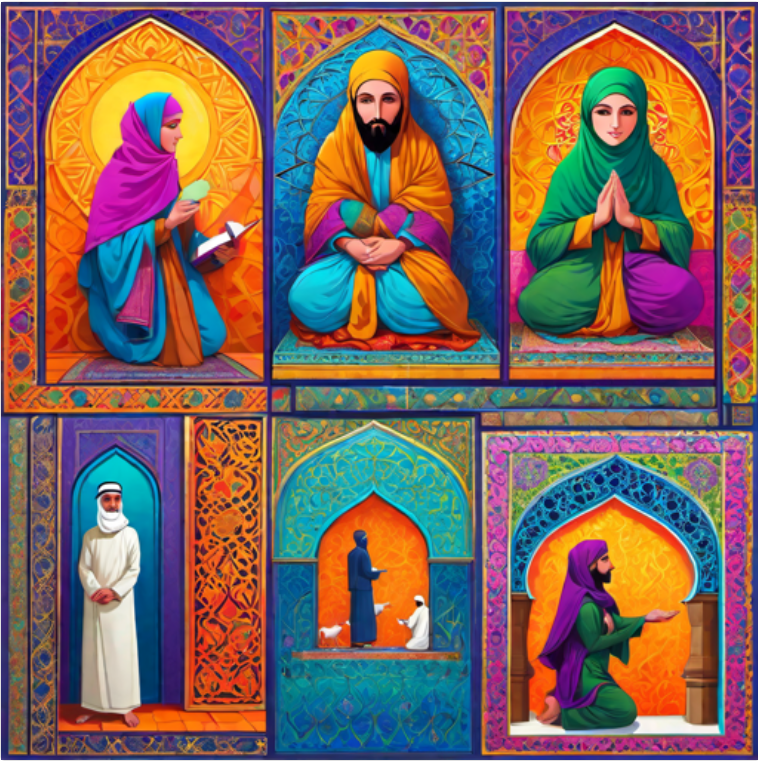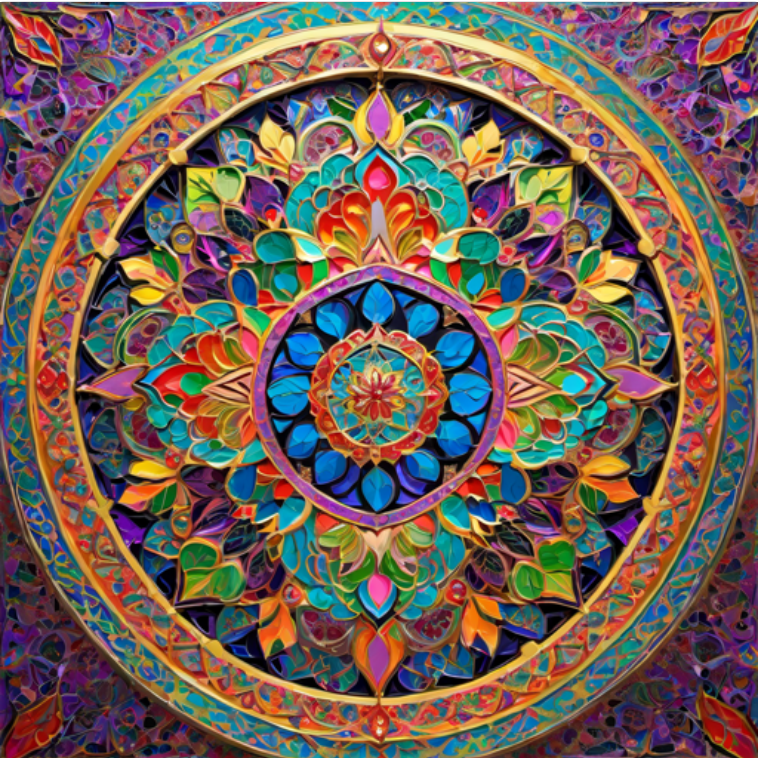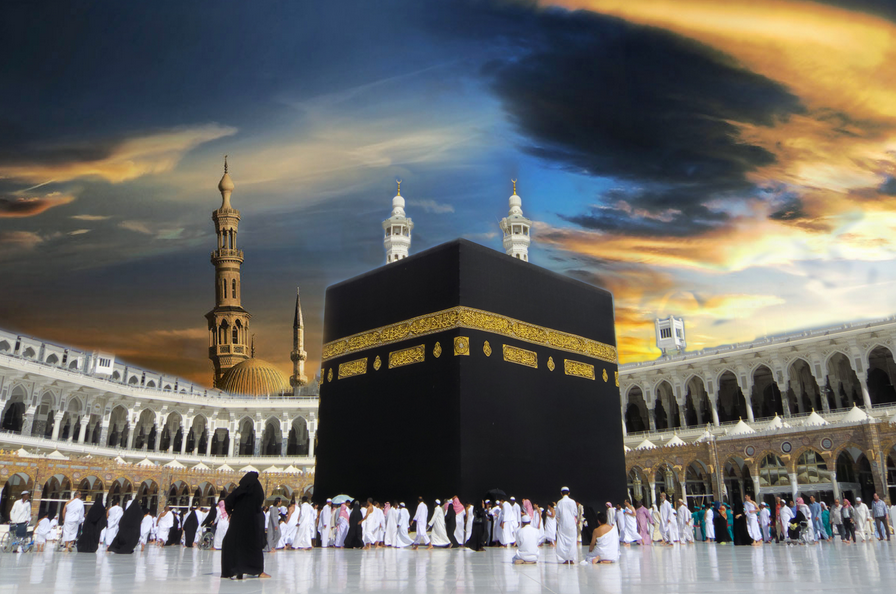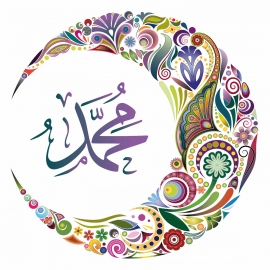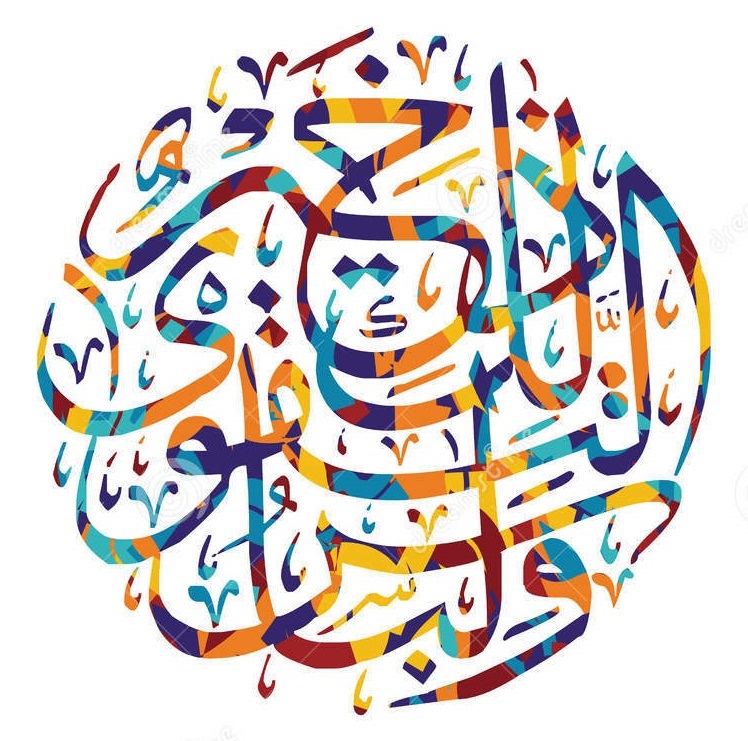|
Tawhid 'Umrahs To Mecca and Madina Inclusive pilgrimages to the sources of Islam FRENCH VERSION, CLICK HERE PLEASE  VERSION
FRANCAISE, MERCI DE CLIQUER ICI
VERSION
FRANCAISE, MERCI DE CLIQUER ICI |
Already in 2012, several of us wanted to experience a spiritual retreat together as well as a cultural quest, at the roots of our Islamic faith, in the company of sisters, brothers, and inclusive Muslim adelphs. The primary objective of this trip (which took place from June 8 to 18, 2012 for the 1st 'Umrah and from December 23, 2024 to January 3, 2025, for the 2nd 'Umrah of Tawheed), in Mecca and Medina, was to allow participants to live a unique experience, by filling up on positive energy, at the sources of our Islamic culture.
Our inclusive group of the "'Umrah of Tawhid" was composed of Muslims of European, North African and North American origin; inclusive, progressive, reformist Muslims, supporters of a peaceful, egalitarian and non-sexist representation of Islam. In 2012, we were accompanied in this quest, alhamdouliAllah, by a great woman of contemporary Islam: Dr. Amina Wadud - theologian, imam and Hadja, who throughout her journey had embodied this peaceful sharing of the Islamic spiritual quest. This was the story of our inclusive pilgrimage to the sources of Islamic liberation...
| Second inclusive Tawhid 'Umrah
- 2024 |
DIAPORAMAS 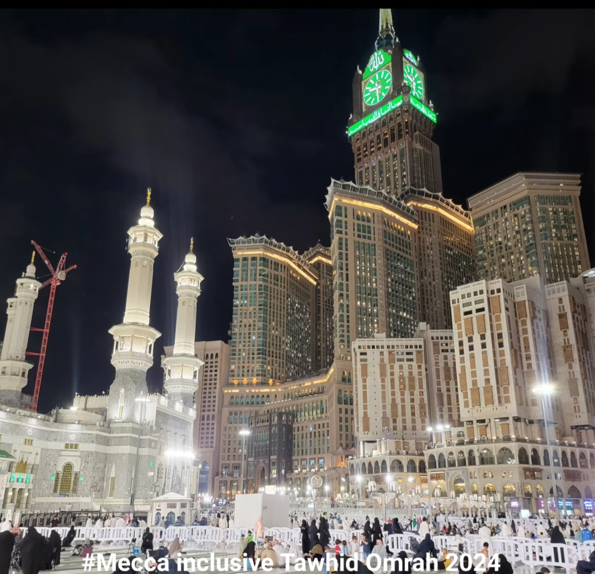
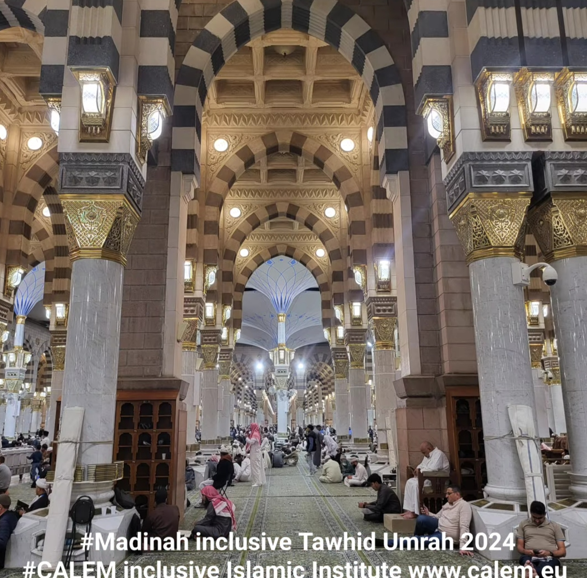
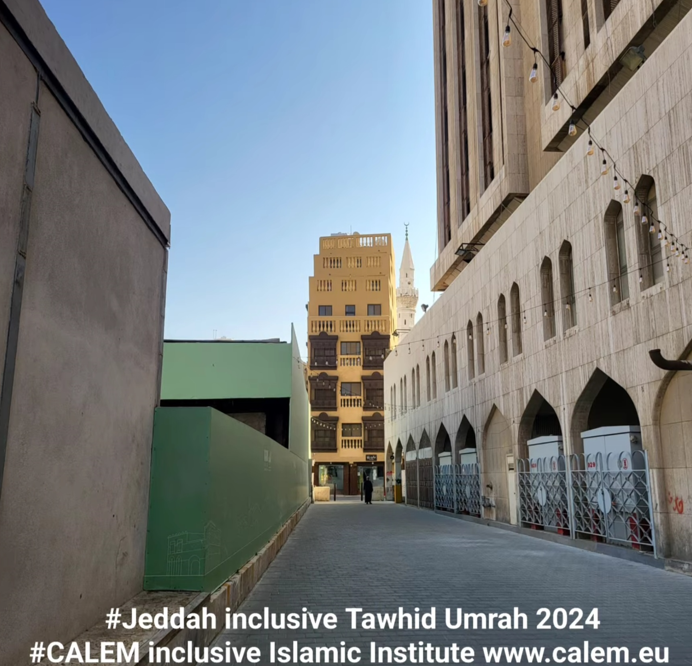 Mecca Madina Jeddah ___________________ BACK TOP PAGE |
| First inclusive Tawhid 'Umrah - 2012 |
DOCUMENTARY 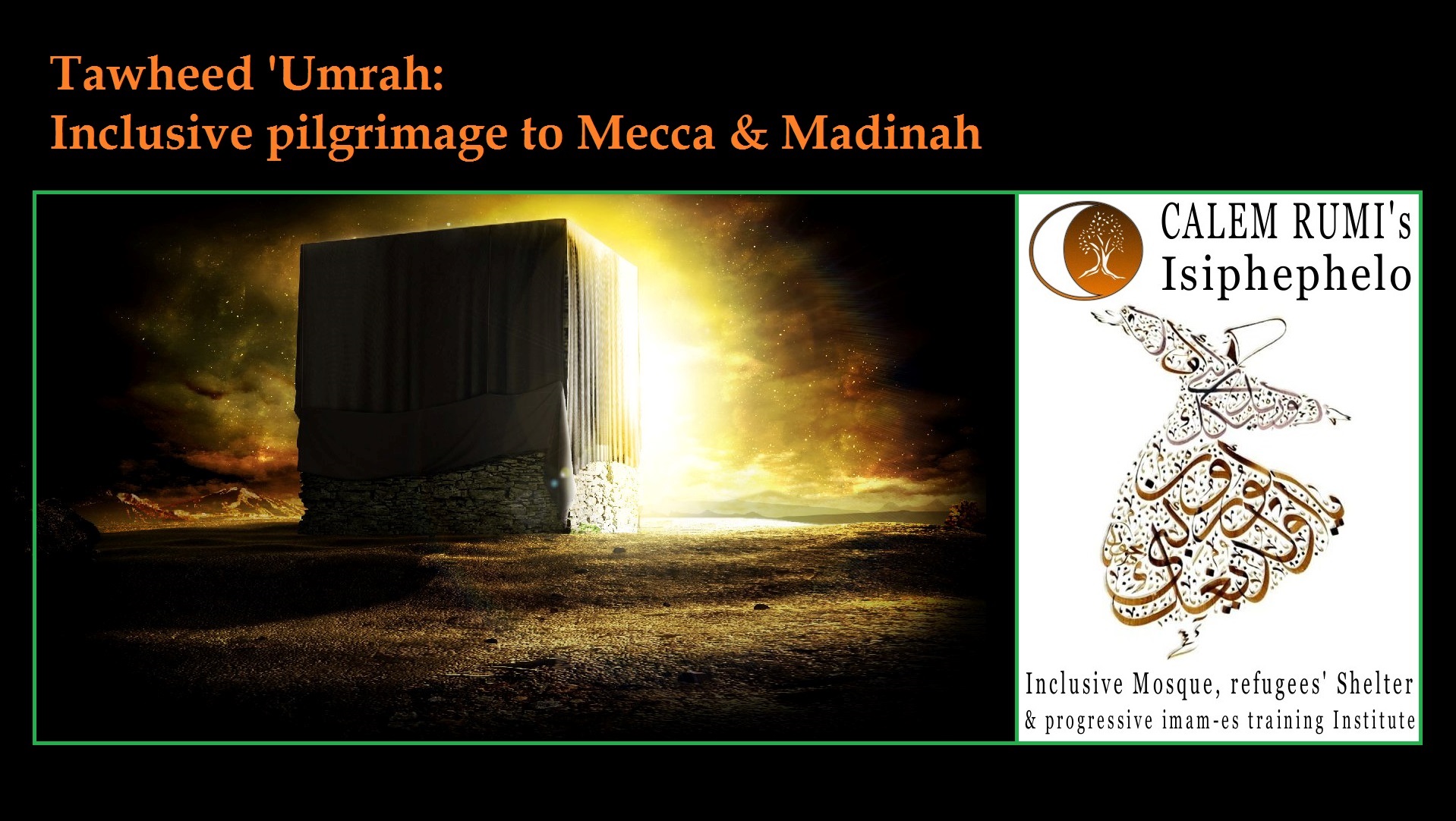 "Tawhid 'Umrah" (2012 - French & English), illustrating our spiritual and cultural quest at the sources of Islam |
Download the texts of the travel blog and the presentation of the Tawhid 'Umrah 2012 here Hoping that this testimony of our spiritual quest at the sources of Islamic liberation, may inspire those who fear to accomplish their pilgrimage, to no longer hesitate to go along this path towards Allah. ___________________ BACK TOP PAGE |
|
Today is Thursday, June 7, 2012, the 18th day of the lunar month of peace, Radjab. Amina Wadud arrived in Paris this morning from San Francisco. She will spend the night with us, so that we can all set off together from Paris to Medina, Saudi Arabia. After a short nap to recuperate from the time difference between North America and Europe, Amina and the rest of our group gather with a few of our friends and relatives for dinner together, to celebrate our imminent departure for the Holy Land. Farida prepares a few North African dishes for us. The atmosphere is lively, and we spend the evening chatting about many things. After the evening prayer, which we perform together, our loved ones finally return home. We fall asleep with the thought that only one night now separates us from our encounter with the Ka'aba: this historic relic, this black artifact, with its symbolic geometric shape, which reminds us of all that most sacred in the hopes and ideals of our humanity. The next morning, after dawn prayers and a light breakfast, our group gathers around Amina Wadud to pray together on the doorstep. Then it's off to nearby Charles-De-Gaulle airport. A few hours later, we catch the mid-day flight with the Jordanian woman to Amman. The flight goes off without a hitch; we fly over Eastern Europe, the Mediterranean, before coming within sight of Palestine and the Jordanian desert. We fly over the Dead Sea, before landing at Amman airport. After the usual identity checks for all transit passengers - travellers of North African nationality pay no visa fees - we are allowed to leave to visit the capital. We pray at the airport mosque before sunset, then catch the 8pm bus to the city center. Here, some of us, already familiar with the area, recommend one of the best restaurants in the whole city: Al-Quds ("Jerusalem"). We dine on succulent traditional dishes, such as mansaf: a dish made of yellow rice coated with butter, beef and curd... A must for all connoisseurs. We sample a few oriental pastries, before settling down on the terrace of a café overlooking the city center, to smoke a shisha while listening to an Arab music band. After a few hours' well-deserved relaxation, in view of the months of stress involved in preparing this inclusive pilgrimage, we head back to the airport, where our plane takes off at 2am.
All the photos from before Departure, click here
After
a two-hour flight, we arrived directly at Medina airport, exhausted
yet tremendously excited by the discoveries awaiting us. What's more,
although some of us have already made one or more pilgrimages - some
are on their fifth - this is the first time we've taken part in such
an adventure as part of such a diverse and motivated group. After
getting off the plane and performing the dawn prayer, a mini-bus
booked by our Paris agency takes us to our hotel in the city center.
The Ishraq
Al Madinah is
located just a few hundred metres from one of the main gates of the Haram
al-Madani - a
term that refers to both the
forbidden and
the sanctuary.
The Haram, in
Medina, is the holy mosque encompassing the tomb of our beloved
Prophet Mohammed After a siesta that lasts until just before midday prayer, we take a break, shower, put on our white pilgrim's clothes and we all decide to take the road to the Haram. We pass through the majestic gates of the Great Mosque, in the scorching heat, and discover a sparsely decorated interior worthy of the world's most beautiful monuments: pillars adorned with gold, ceilings adorned with stucco, walls covered with the most delicate marble... A debauchery of luxury that is criticized by many a Muslim who visits these holy places out of self-sacrifice, to meditate at the sources of Islamic liturgical tradition. That said, air-conditioning throughout the holy sites is a luxury that would be hard to do without in the middle of the Saudi desert. After the dohr prayer, we head across the street from the mosque to the nearest shopping center for a bite to eat. Here again, we enjoy the local cuisine, usually meat and a variety of salads. Then some decide to return to the mosque to pray, others to the hotel to freshen up, while others decide to start shopping now: For centuries, Medina has been known for its flourishing trade, importing the most precious fabrics and expensive jewels from the four corners of the Islamic world.
All pictures from outside the Haram of Medina, Click here
In
the late afternoon, since the visit to the Prophet's tomb اللهم صل على محمد وعلى آل محمد كما صليت على ابراهيم وعلى آل ابراهيم وبارك على محمد وآل محمد كما باركت على ابراهيم وعلى آل ابراهيم في العالمين انك حميد مجيد "O Allah, send prayers upon Muhammad and upon the family of Muhammad, as You sent prayers upon Ibrahim and upon the family of Ibrahim; You are indeed Worthy of Praise, Full of Glory. O Allah, send blessings upon Muhammad and upon the family of Muhammad as You sent blessings upon Ibrahim and upon the family of Ibrahim; You are indeed Worthy of Praise, Full of Glory"
All pictures of the mosque in Medina, Click here Between the evening prayer, al-maghrib, and the night prayer, al-'isha, most of us spend our free time at the Haram, usually reading verses from the Koran; some of us help those in our group who find Arabic more difficult to decipher. These are exceptional, unforgettable moments of unparalleled fraternity and contemplation. After a frugal meal, we head back to the hotel to get some much-needed sleep, drunk as we are on sleep after so much effort. At around 4am the next morning, we set off again for the mosque. It's impressive to see so many thousands of us converging on the Haram at such an early hour of the morning, prostrating ourselves at the same time before the Lord our God, to the rhythm of the allahou akbar chanted by the crowd of believers in communion.
We
spend three days and four nights in Medina, where our daily routine
is punctuated by prayers, meals together, meditation and, for some,
shopping. Before leaving the holy city of the Prophet قَدْ نَرَى تَقَلُّبَ وَجْهِكَ فِي السَّمَاء فَلَنُوَلِّيَنَّكَ قِبْلَةً تَرْضَاهَا فَوَلِّ وَجْهَكَ شَطْرَ الْمَسْجِدِ الْحَرَامِ وَحَيْثُ مَا كُنتُمْ فَوَلُّواْ وُجُوِهَكُمْ شَطْرَهُ وَإِنَّ الَّذِينَ أُوْتُواْ الْكِتَابَ لَيَعْلَمُونَ أَنَّهُ الْحَقُّ مِن رَّبِّهِمْ وَمَا اللّهُ بِغَافِلٍ عَمَّا يَعْمَلُونَ “Indeed, We see you ˹O Prophet˺ turning your face towards heaven. Now We will make you turn towards a direction ˹of prayer˺ that will please you. So turn your face towards the Sacred Mosque ˹in Mecca˺- wherever you are, turn your faces towards it. Those who were given the Scripture certainly know this to be the truth from their Lord. And Allah is never unaware of what they do.” (Quran: 2.144).
On Monday June 11, 2012, we pray one last time at the Haram in Medina, before returning to the hotel to dress in our pilgrim's clothes specific to the performance, in Mecca, of the rites that are the heart of the 'Omra pilgrimage. The men in our group put on the two traditional white veils: al-rida and al-izar, wearing nothing but a belt and sandals, to symbolize the destitution of the human being during this existence in the face of Allah's majesty; the women in our group, on the other hand, dressed all in white. In the early afternoon, we set off in the heat of almost fifty degrees Celsius in the shade, amidst a lunar landscape of dust and rock. Our minibus takes us first, on the way to Islam's holiest city, to the Abyar 'Ali mosque - "the wells of Ali" - in Dhul Hulayfa; this is the miqat - the starting point of the pilgrimage to Mecca proper - for those coming from Medina; on the way, we start praying as recommended: لبيك اللهم لبيك لبيك لا شريك لك لبيك ان الحمد والنعمه لك والملك لاشريك لك "I Obey, O Lord, I obey
You, You Don't have a
partner, I obey You, Abyar
'Ali mosque After a short prayer of two rak'at - prostrations - in this superb mosque, we set off again for Mecca, arriving shortly after sunset. In this city, overcrowded with pilgrims, especially at the time of the great Hajj pilgrimage, which we won't be making this year, the Al-Mohadjireen hotel is located further away from the Haram al-Mecci: the holiest mosque of Islam. We also discover that the rooms are more cramped and less clean. But we don't linger: after a quick shower, our group heads for the Haram to answer the Call to Prayer. O Lord, we will soon answer your universal call: وَأَذِّن فِي النَّاسِ بِالْحَجِّ يَأْتُوكَ رِجَالاً وَعَلَى كُلِّ ضَامِرٍ يَأْتِينَ مِن كُلِّ فَجٍّ عَمِيقٍ "Call ˹all˺ people to the
pilgrimage - Hajj. On the way, we had to bypass numerous alleyways that had been condemned for construction work; due to the enormous influx of pilgrims in recent decades, Mecca is in fact a permanent construction site: entire historic quarters have unfortunately been razed to the ground to build new hotels, each more gigantic than the last. Once we finally arrived at the large square facing the Haram, we entered the Holy of Holies through the monumental gate closest to our hotel, in an incredibly contemplative atmosphere, despite the hundreds of thousands of pilgrims.
All the pictures of the Haram in Mecca, Click here We walk along the central aisle of the mosque, until at the end we can make out the central courtyard where the Kaa'ba stands, though we can't yet see it clearly. Our hearts are racing; the emotion in our group is palpable. Finally, we catch a glimpse of the House of God! We make our way into the central square, holding on to each other in single file, taking care not to get lost in the midst of the human tide that is making its seven ritual circumnavigations - tawaf - around the Ka'aba at the same time as we do. Each time we pass, we wave to the Black Stone: a meteorite that probably fell from the sky ancient times, and for millennia is said to have been the symbol of Allah's gift to the Arab peoples. During the tawaf around the Ka'aba, we feel the strong magnetism of this historic relic, now completely emptied of its ancestral superstitions. In the past, the Ka'aba was used to display the more than three hundred statues of the gods of the Arab pantheon. Today, Muslims' intentions, in principle, are purified; as in the testimony pronounced by every Muslim, la ilaha illa Allah - "there is no God... Except the Divine"! It is this physical emptiness that makes possible a sacrifice that is nonetheless full of spirituality: the sacrifice of renouncing a part of our human superstitions, for the love of God, mirroring the love we have for our own humanity. Having completed our circumnavigation, we pray briefly behind the monument dedicated to the fathers of all Semitic prophets and prophetesses: Ibrahim (the "father of a multitude of Nations"), who is said to have left his footprints in the clay when he built the Ka'aba with his son Ishmael. Then we run between the two hills, now part of the holy sites: the Safa and Marwa hills, or what's left of them. We run just as Ishmael's mother Hadjar ("the expatriate") did, in the hope of finding help from a caravanserai that had passed by. She was a slave who wanted to save her son from the torments of the desert, after her lover and master Abraham had placed them in the heart of this valley, in obedience to the will of God expressed by Sarah, his wife, not to leave a half-brother to her legitimate son, Isaac. The Lord's ways are mysterious and always beneficial to our humanity: thus, a slave woman, black, migrant, was at the origin one of the most important spiritual traditions of our known human history.
Meditating
on these aphorisms, and on the ethical consequences of such actions
by these blessed individuals many millennia ago, we drink from the
well of Zamzam:
the miraculous spring, the Lourdes of Muslims, which according to
tradition appeared after the Archangel Gabriel struck the sand with
his heel, in order to offer the enlightened slave and her holy son
something to quench their thirst. A water said to cure all ills. Our
pilgrimage is now complete, in
accordance with the tradition of the Prophet فَاصْبِرْ
عَلَى مَا يَقُولُونَ وَسَبِّحْ بِحَمْدِ
رَبِّكَ قَبْلَ طُلُوعِ الشَّمْسِ "So
be patient ˹O Prophet˺ with what they say.
And glorify the praises of your Lord before sunrise and before sunset, and glorify Him in the hours of the night and at both ends of the day, so that you may be pleased ˹with the reward" (Quran: 20.130).
Generally speaking, our days in Mecca are punctuated, as in Medina, by prayer, meals and shopping. Some of us are like ancient peripatetic philosophers, walking through the crowded alleys of the holy city - um al- qura, "the mother of cities" - between the Haram and our hotel, discussing metaphysics and Islamic exegesis. Some spoke of the verse in the Koran dealing with the status of women in Islam, which they heard several times during their stay during the prayer led by the imam, or as they passed a store selling audio CDs of the Koran: ٱلرِّجَالُ قَوَّٰمُونَ عَلَى ٱلنِّسَآءِ
بِمَا فَضَّلَ ٱللَّهُ بَعْضَهُمْ عَلَىٰ بَعْضٍ وَبِمَآ أَنفَقُوا۟ مِنْ
أَمْوَٰلِهِمْ فَٱلصَّٰلِحَٰتُ قَٰنِتَٰتٌ حَٰفِظَٰتٌ لِّلْغَيْبِ
بِمَا حَفِظَ ٱللَّهُ وَٱلَّٰتِى تَخَافُونَ نُشُوزَهُنَّ فَعِظُوهُنَّ وَٱهْجُرُوهُنَّ فِى ٱلْمَضَاجِعِ وَٱضْرِبُوهُنَّ فَإِنْ أَطَعْنَكُمْ فَلَا تَبْغُوا۟ عَلَيْهِنَّ سَبِيلًا إِنَّ ٱللَّهَ كَانَ عَلِيًّا كَبِيرًا "Men are the caretakers of women, as men have been provisioned by Allah over women and tasked with supporting them financially. And righteous women are devoutly obedient and, when alone, protective of what Allah has entrusted them with.1 And if you sense ill-conduct from your women, advise them ˹first˺, ˹if they persist,˺ do not share their beds, ˹but if they still persist,˺ then discipline them ˹gently˺.2 But if they change their ways, do not be unjust to them. Surely Allah is Most High, All-Great” (Quran: 4.34).
It's no coincidence that we hear this verse repeatedly during our 'Omra of Tawhid, since it's a verse that is all too often used to belittle women's inferiority, and which sometimes leads dogmatic Muslims to justify physical violence against women, when other interpretations are possible (see the work of Amina Wadud or Asma Lamrabet about this topic). We also discuss this term, often used in the Koran, which Amina came across several times during our 'Umrah readings. It's the term fahisha, which is said to be cited six times in the Koran; this term may be translated as "abomination" or "serious transgression of social rules", but is invariably translated, by dogmatic Muslims, as "homosexuality" or "sodomy" or "fornication", when it comes to describing the full extent of the rape, theft and piracy committed by Lot's people. Here again, we all agree that the prejudices of certain exegetes have too strong an influence on the representation, which should be peaceful and universally inclusive, that we freely elaborate of our Islamic cultural and spiritual heritage. In any case, in our spare time in Mecca, we've made a habit of visiting the huge shopping mall with its 600-metre luxury condominium, which just been built directly opposite Mecca; one of the tallest buildings in the world, topped by a gaudily coloured clock in a taste that few of us appreciate. But this is undoubtedly the sign of a necessary modernization, against which we can do nothing. Some of us avoid these crowded spaces as much as possible, in order to meditate in front of the Ka'aba. We make a of praying together, usually at the back of the main mosque and upstairs; elsewhere, the mutawwa - religious police - formally and sometimes violently prohibit men and women from praying together. This is a bid'a - an innovation in Islam - which our group has repeatedly tried to oppose: we tried to pray the sunset prayer in the central courtyard facing the Ka'aba, men and women of our group all mixed together. Unfortunately, we were chased away, and some of us were even energetically pushed by these conservatives who have no respect for human dignity. Indeed, the religious police are deploying incredible energies to impose their sectarian and patriarchal dogma at the very heart Islam's holy of holies. They seem to consider that a certain form of violence would be authorized in order to maintain strict gender segregation, which until just a few years ago - as those who have been on pilgrimage to Mecca can testify - had never been applied in Mecca in living Muslim memory.
This
conservative violence doesn't prevent us from staying there,
sometimes for hours on end, lulled by the tremendous positive
magnetism emanating from the Ka'aba,
thanks to millennia of worship and prayers invoked by generations of
men and women and adelphs of good will; we'll be spending six
extraordinary days in Mecca. Not far from the city center, we'll also
visit the Hira cave
on the djabal
Noor -
"mount of light" - where the Prophet Mohammed اقْرَأْ بِاسْمِ رَبِّكَ الَّذِي خَلَقَ خَلَقَ الْإِنسَانَ مِنْ عَلَق اقْرَأْ وَرَبُّكَ الْأَكْرَمُ الَّذِي عَلَّمَ بِالْقَلَمِ عَلَّمَ الْإِنسَانَ مَا لَمْ يَعْلَمْ “Read in the
name of your Lord, who has
created all, Cave of Hira on the mount Noor In Mecca too, Amina Wadud was invited before we left by family and friends of the famous Saudi feminist: Dr. Hatoon Ajwad al-Fassi. Dr. Hatoon's father, Sheikh al-Fassi, is one of the most eminent masters of Saudi Sufism; his family was persecuted for years by the totalitarian Wahhabi regime. On her return, Amina will give us a very warm account of the two days she spent in the company of those Saudi intellectuals who still believe that a better, enlightened future, far from macho and patriarchal myths and superstitions, will one day be possible for Saudi Arabia and for all Muslims.
One
of our group members, Mustapha, decided shortly before our departure
to dedicate a second 'Umrah pilgrimage
to his late mother; may God accept her soul in His infinite mercy. We
accompany him to the miqat of
the people of Mecca, the beautiful mosque of 'Aïcha,
the favorite of the Prophet Mohammed's wives Aïcha mosque After our ablutions, we pray there and then return to Mecca, arriving once again just in time for the sunset prayer. Mustapha once again performs the customary 'Umrah rites his mother: the seven circumnavigations around the Ka'ba, the salute at the black stone, the prayer behind Abraham's mausoleum, the run between Safa and Marwa, the visit to the waters of Zamzam. Then the next day, June 18, 2012 - Rajab 28, 1433 A.H. - after completing our tawaf al-wada' - the circonvolutions of farewell to the Ka'aba - we leave Mecca via Jeddah international airport, less than fifty kilometers , on the 7 a.m. flight to Paris. Once we reached Charles-De-Gaulle airport, most of us parted ways, feeling that we'd had a mystical, human experience beyond our most positive expectations. Amina Wadud will be leaving us the next day to return to her home in California, San Francisco. Some us will later share the fact , as they pray, they now have in their hearts, turned towards the Ka'ba, the warm vision of fraternal and sororal love, lavished on one another by all the members of the first Tawhid Umrah.
|
Textes par Amina Wadud & L.Zahed Photos prises par Mustapha & L.Zahed Blog de voyage et photos éditées par L.Zahed Production du documentaire : CALEM, dans le cadre du programme INIMuslim ; Réalisation du documentaire : Ludovic-Mohamed Zahed et Qiyaamudeen Jantjies-Zahed Musique du documentaire (libre de droits, après autorisation de Hicham Chahidi datée du 3/09/2012 à 14h10) : http://www.musicscreen.be E-mail : islam.inclusive.2012@gmail.com & france.calem@gmail.com. ___________________ BACK TOP PAGE |
